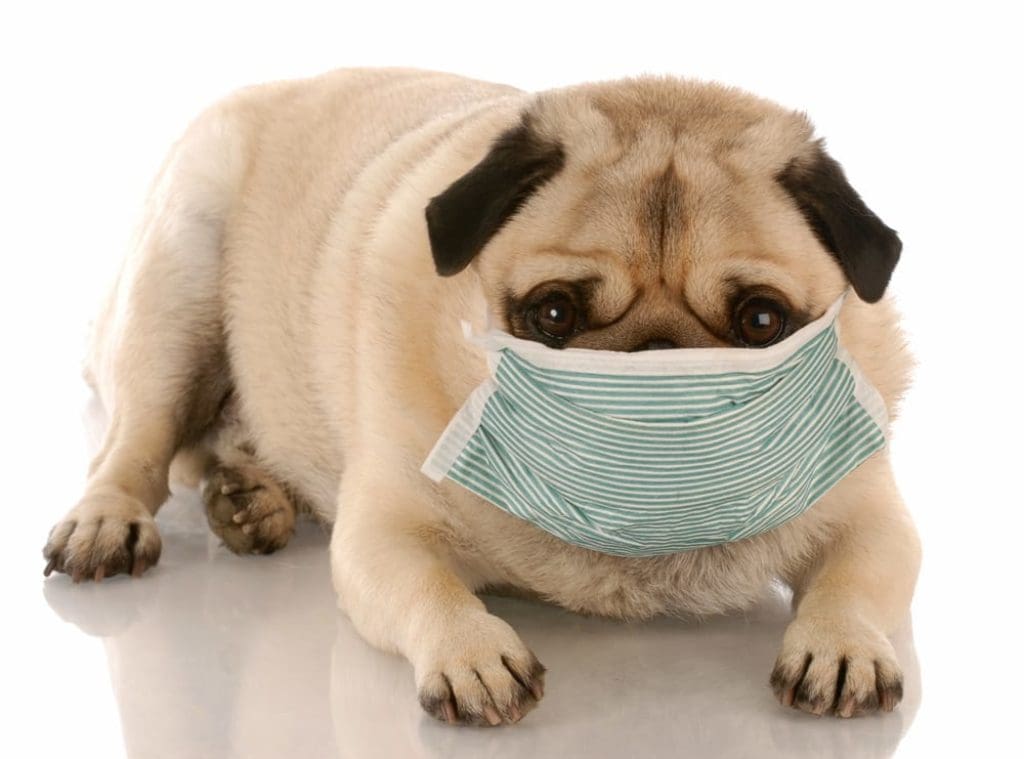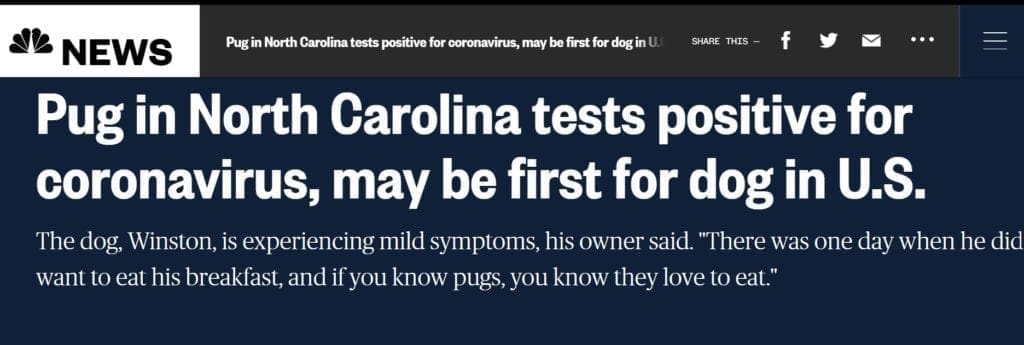Is The Media Jumping The Gun On The ‘COVID-19 Dog’? USDA, Which Must Confirm Covid Cases in Animals, Says: ‘If the samples arrive today, we won’t have results until at least tomorrow’
***This story has been updated***
Is The Media Jumping The Gun On The ‘COVID-19 Dog’? USDA, Which Must Confirm Covid Cases in Animals, Says: ‘If the samples arrive today, we won’t have results until at least tomorrow’
A family’s dog in North Carolina has been making national headlines after Duke researchers say that the dog tested positive for Coronavirus during a study — in which the family, including the family’s pets, have been participating — that examines different responses to infection. However, when asked about the dog’s status yesterday, Lyndsay Cole, a spokesperson for the U.S. Department of Agriculture (USDA) told The Canine Review: “Any new findings of COVID-19 in an animal species must be confirmed by USDA’s National Veterinary Services Laboratories (NVSL) and reported to the World Organisation for Animal Health (OIE).”
That confirmation from the USDA’s NVSL is still pending as of Wednesday, yet few if any national news outlets noted it.
“Pug in North Carolina Tests Positive For Coronavirus,” NBC News declared. There is no mention of the USDA in the story.
Nobody is suggesting that the researchers at Duke are lying or that their testing capabilities are flawed, but Cole did tell The Canine Review on Wednesday morning not only that the test results on the family dog, a pug named Winston, are pending but also that the USDA’s National Veterinary Services Laboratories (NVSL) has yet to receive the samples.
If the samples arrive today, we won’t have results until at least tomorrow (and possibly longer depending on sample quality and a number of other factors),” Cole told The Canine Review in an email.
As for the likelihood that the USDA test will not confirm the preliminary results from the Duke study, Cole said in an email Wednesday evening that false positives are possible. “It’s not necessarily that NVSL results would contradict results of another lab,” she said, “but there are cases where NVSL is not able to confirm the virus or disease in question. This can be for a variety of reasons. For example, an initial lab may complete a simple test to detect the presence of a virus, and then a sample goes through the process of virus isolation when it reaches NVSL. There are also cases where false positives for various diseases have occurred. This is not necessarily specific to COVID-19, but to the process of testing in general.”


